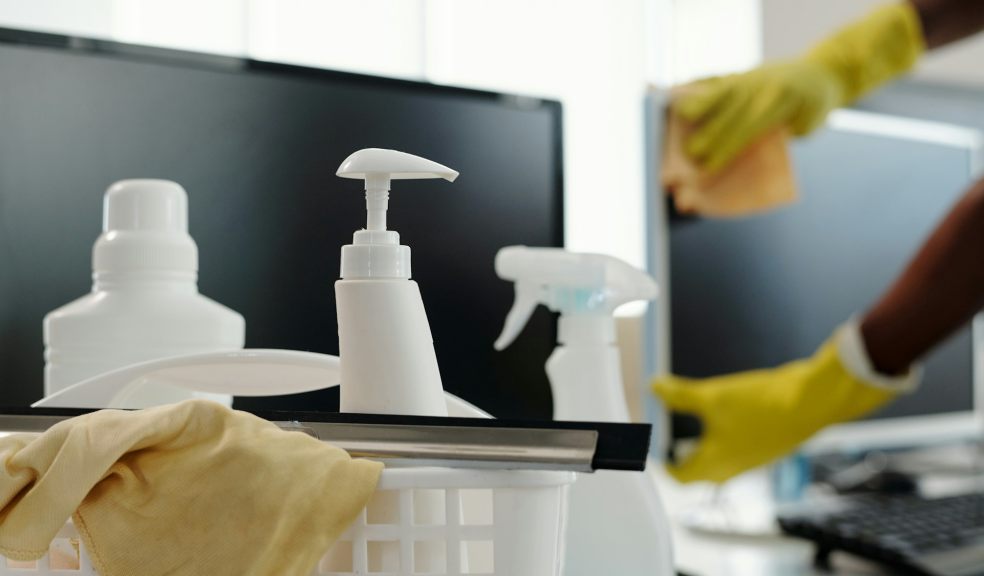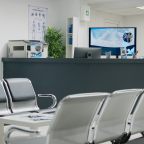
Why Deep Cleaning Is Critical for Every Commercial Space
Deep cleaning removes dirt, bacteria and allergens that everyday cleaning simply cannot reach. While routine cleaning maintains appearances, deep cleaning targets the hidden layers, behind appliances, under furniture and within ventilation systems, where harmful contaminants accumulate over time. This deeper process not only improves hygiene but also enhances the longevity of commercial interiors and fixtures.
How Does Deep Cleaning Impact Health and Safety?
A clean space is a safe space, and deep cleaning is essential to creating a healthy environment for both staff and visitors. It helps prevent the spread of viruses, mould and bacteria, especially in high-traffic areas where contamination risk is high.
According to a recent UK facilities management survey, businesses that implemented regular deep cleaning saw a 34% reduction in employee sick days over a 12 month period. This translates to fewer disruptions and a more productive workforce.
Which Commercial Spaces Benefit Most from Deep Cleaning?
Every commercial space, regardless of size or function, can benefit significantly from deep cleaning. This includes offices, retail stores, gyms, schools, restaurants and dental practices in London and across England, where sanitation is not only expected but required by regulation. These environments often see high footfall or involve close contact, making them especially vulnerable to bacterial build-up if not properly cleaned.
How Often Should Deep Cleaning Be Scheduled?
The ideal frequency depends on the nature of the business, but a quarterly deep clean is a safe standard for most commercial settings. High-traffic or high-risk spaces, like medical clinics, gyms or open-plan offices, may benefit from monthly or even weekly sessions.
By creating a custom schedule with a professional service, businesses can ensure hygiene standards are consistently upheld without disrupting daily operations.
Why Is Deep Cleaning Also a Business Investment?
Deep cleans contribute directly to a company's professional image and reputation. Clients, customers and staff notice when a space feels truly clean, creating trust, comfort and credibility.
In sectors where first impressions are crucial, like hospitality and healthcare, cleanliness can be the difference between repeat business and lost opportunities. Moreover, well-maintained environments reduce the need for costly repairs or replacements of neglected fixtures, saving money in the long term.
What Role Does Deep Cleaning Play in Regulatory Compliance?
Commercial properties are often subject to health and safety inspections, especially in industries like food service, education and healthcare. Deep cleaning supports compliance with these standards by ensuring that every part of the premises, from kitchens to washrooms to air ducts, is thoroughly sanitised.
Failing to meet cleanliness benchmarks can result in fines, legal issues or damaged reputations. Regular deep cleaning demonstrates a business’s commitment to accountability and professionalism.
How Can Deep Cleaning Boost Employee Morale?
People work better in clean environments. When staff know that their health and comfort are being prioritised through deep cleaning, it can boost overall morale and job satisfaction.
Cleaner spaces reduce stress, increase focus and foster a greater sense of pride in the workplace. It also sends a message that the business values its people, which in turn supports staff retention and team culture.
Conclusion
Deep cleaning is no longer a luxury, it is a necessity for any commercial space that values health, safety and reputation. It protects the wellbeing of everyone who enters the premises, strengthens regulatory compliance and enhances a company’s professional image. Whether it is a retail store, a corporate office or a dentist, regular deep cleaning creates a foundation for success.













